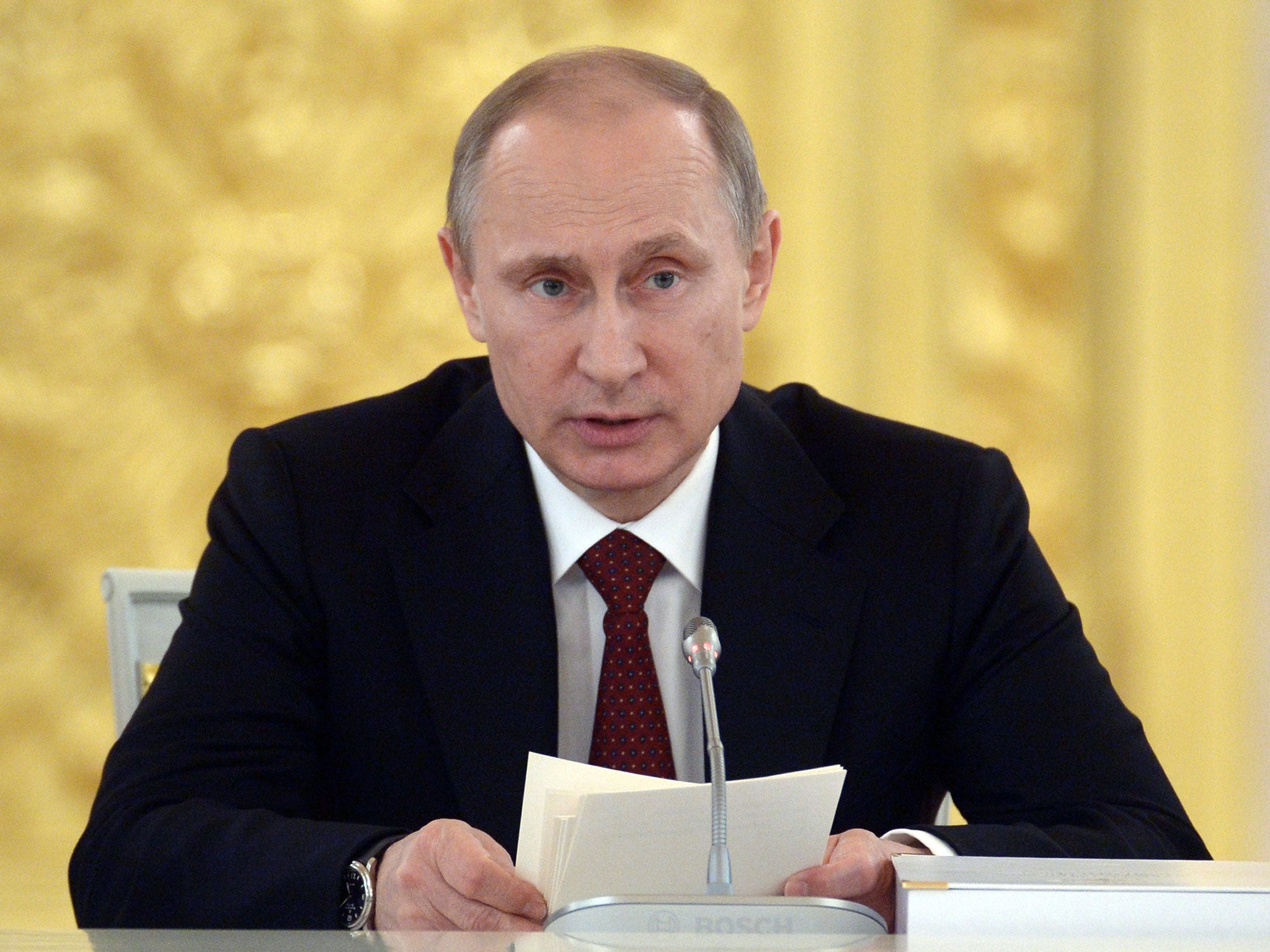Crimea crisis: Putin adviser proposes division of Ukraine along Nazi-Soviet lines and says it's 'never too late to correct historical errors'
Prominent mouthpiece for Russian president suggests further referendums to break up Ukraine

Your support helps us to tell the story
From reproductive rights to climate change to Big Tech, The Independent is on the ground when the story is developing. Whether it's investigating the financials of Elon Musk's pro-Trump PAC or producing our latest documentary, 'The A Word', which shines a light on the American women fighting for reproductive rights, we know how important it is to parse out the facts from the messaging.
At such a critical moment in US history, we need reporters on the ground. Your donation allows us to keep sending journalists to speak to both sides of the story.
The Independent is trusted by Americans across the entire political spectrum. And unlike many other quality news outlets, we choose not to lock Americans out of our reporting and analysis with paywalls. We believe quality journalism should be available to everyone, paid for by those who can afford it.
Your support makes all the difference.A prominent political ally and advisor to Vladimir Putin has proposed splitting up Ukraine along the lines of an historical pact agreed between the Nazis and Soviet Union.
Vladimir Zhirinovsky, widely regarded as a mouthpiece for the Russian president, proposed a redrawing of the borders of western Ukraine - which would involve regions being incorporated into the territories of Poland, Romania and Hungary.
He appeared to have written the letter in the days after Russia itself annexed the Crimea region of Ukraine last week, and suggested further referendums could be held to see further territory break away from Kiev.
Zhirinovsky wrote: “It's never too late to correct historical errors.”
Latest: Russia scathing on G8 suspension
The politician is the deputy speaker of the Duma, and his nationalist Liberal Democratic party largely backs President Vladimir Putin in the Russian parliament.
Sergei Sobolev, head of Ukraine's largest parliamentary faction, the Fatherland party, called him a “provocateur”.
“But Zhirinovsky often is the voice of Putin,” he added.
Zhirinovsky's letter, seen by Reuters, suggested Poland, Hungary and Romania, who are now in the European Union, might wish to take back regions which he said were in the past their territories.
The regions were incorporated into Ukraine when it was part of the Soviet Union at the end of World War Two and featured in a secret annex of the 1939 Molotov-Ribbentrop pact under which the Soviet and Nazi German foreign ministers carved up the area.
It was not clear whether the letter was serious or a publicity stunt. But it follows a crisis in relations between Moscow and Kiev since the Moscow-backed Viktor Yanukovich was ousted as Ukraine's president last month.
Zhirinovsky proposed Ukraine's Chernivtsi, Zakarpattia, Volyn, Lviv, Ternopil, Ivano-Frankivsk and Rovensky regions, together with Poland, Romania and Hungary hold referendums on whether the regions should break away from Ukraine.
Romania might wish to have Chernivtsi, Hungary the Zakarpattia region, and Poland the rest, he said.
Read more: Crimea is 'reminiscent of the 1930s'
Moscow threatens to cut gas supplies to Europe
Crimea is lost, but there is a deal waiting to be done
The Europe they hate no longer exists
The proposal would allow central Ukraine to be free of “ unnecessary tensions” and the referendums would “bring prosperity and tranquillity to the Ukrainian native land,” the letter said.
Polish Foreign Ministry spokesman Marcin Wojciechowski dismissed the letter as a “complete oddity” and regretted some Russians “ still think in terms of the Molotov-Ribbentrop pact.”
Alexandr Efremov, head of the parliamentary faction Party of Regions, Ukraine's former ruling party, said he did not support Zhirinovsky's proposal.
“Just as we have some intemperate people, Russia has some of them as well,” Efremov said at a briefing. “I do not support this (Zhirinovsky's) approach.”
Ukraine's government spokeswoman declined to comment.
Additional reporting by agencies
Join our commenting forum
Join thought-provoking conversations, follow other Independent readers and see their replies
0Comments